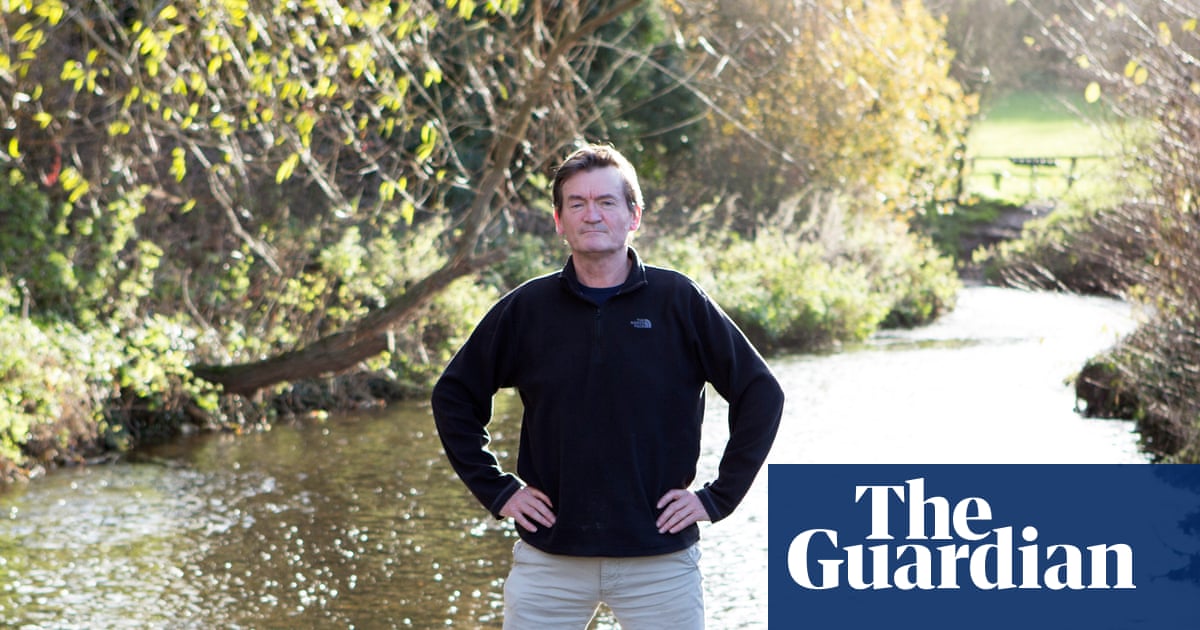
The Amwell Magna Fishery, a historic fishing club chaired by singer and environmentalist Feargal Sharkey, is taking a stand against the Environment Agency (EA) for allegedly draining the River Lea, jeopardizing the rare brown trout population. This legal battle sheds light on the devastating impact of water abstraction on this fragile ecosystem and brings attention to the critical need for environmental preservation.
A Historic Fishing Club in Peril
Established in 1841, the Amwell Magna Fishery operates on a secluded stretch of the River Lea in Hertfordshire. Known as the oldest fishing club in England, it is home to the country’s unique breeding population of brown trout. However, recent actions by the EA have put this vital habitat at risk.
In their legal correspondence, the fishery accuses the EA of unlawfully reducing water flow in this section of the River Lea. The club claims that decreasing the river’s flow to critical levels has significantly reduced oxygen, endangering trout and other species reliant on fast-moving, clean water.
Environmental Vandalism or Management?
According to the pre-action legal letter from law firm Leigh Day, the EA began diverting water from the River Lea on 3 June 2025. It alleges that water discharge dropped from a historic 156 million liters per day to as little as 30 million liters, before later stabilizing at 66 million liters. This act is said to have caused widespread harm—not only to trout, but also to other aquatic life and bird species, such as bitterns and gadwalls, which thrive in the ecosystem.
Feargal Sharkey, widely known for his music career and now an advocate for river health, has openly condemned the EA’s actions. “The very agency established to protect and conserve our waterways is now responsible for one of the most shocking acts of environmental vandalism in recent history,” Sharkey noted.
What’s at Stake?
The impacted section of the River Lea is part of a designated site of special scientific interest and holds international environmental protection status. Beyond its ecological significance, the fishery holds legal fishing rights, which could mean that EA’s actions constitute nuisance or trespass under UK law.
The fishing club, alongside Leigh Day, is demanding that the EA restore the natural water flow immediately or face a judicial review. If the court intervenes, the decision could set a legal precedent for how water resources are managed during climate-related crises, such as droughts.
Why This Matters
This incident highlights the broader environmental and ethical challenges posed by water management during periods of drought, which have become increasingly common across England. With fish populations and delicate ecosystems already under pressure, actions like unchecked water abstraction can have irreversible consequences. To preserve rivers like the Lea, there’s an urgent need for sustainable water management practices that prioritize ecosystem health.
How You Can Help
Every step toward environmental stewardship counts. From supporting organizations advocating for river conservation to minimizing personal water waste, there’s plenty individuals can do. Want to go the extra mile? Check out Muck Boot Waders, a must-have for anglers and outdoor enthusiasts who care about clean rivers and thriving ecosystems. By investing in high-quality outdoor gear, you can explore local waterways responsibly while showing your support for conservation efforts.






